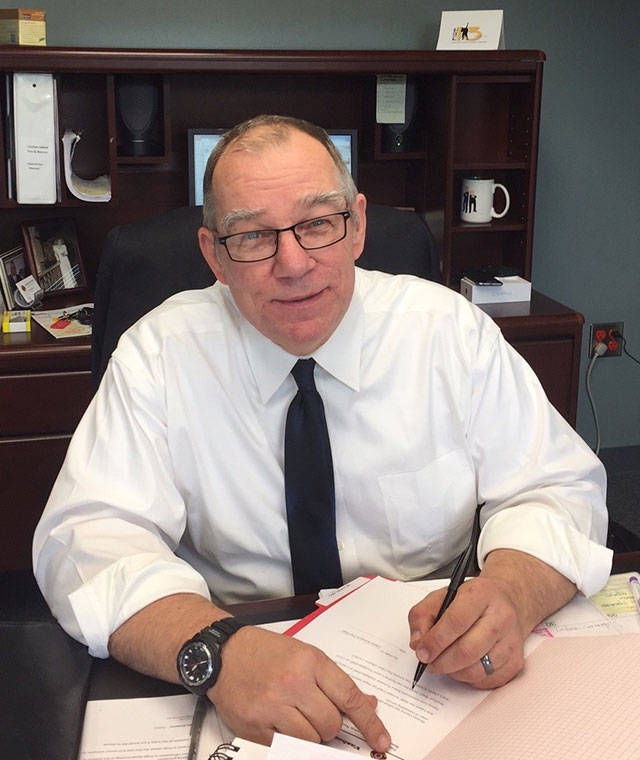Because of the regular headlines and news of fires burning across Washington, the surrounding states and California, we have been asked to advise the island of just how dangerous conditions are and what we can do to practice greater wild fire safety. Let’s see what counsel we can offer.
First, our location is a mixed blessing; as an island, conditions do not support the start of wildland fires. The island’s temperatures are cooler, the humidity higher, lighting storms are infrequent, and though heavily used, most island shoreline and backcountry activities do not typically include threats that start a fire, for example abandoned campfires or sparks from ATVs. The down side is we are an island, and should a large fire take hold, the resources on the island are limited, and help is likely an hour away; much can go wrong and be lost in an hour. As we are a rural environment and many of us enjoy our homes being a part of the surrounding nature, a wildland fire will not burn long before homes and lives are involved. It has been years since there was a major grass, brush or forest fire on the island, and though weather conditions typically don’t support the start or growth of a fire, years of undergrowth and ground cover can sustain the rapid growth of the smallest of fires: a cigarette butt dropped, a campfire left to burn out, briquettes dumped out to clean the grill, or a recreational fire’s last smoldering wood dumped over a bulkhead with the assumption the high tide will drown it. We are not as situated as the surrounding counties are to burn, but we can burn, and will quite easily, if we are careless.
So what can you do to help? There are many things we all can do to protect the island and each other; below are some, by no means all, but a start. One could joke that we are more adapted to the rainy seasons, so until they return, please be conscientious. Too often it is when the fire is believed to be out that our focus lapses; when cleaning out your fire pit, fireplace or barbecue ensure that all by-products of the previous fires are thoroughly soaked before disposing of them. Here are 10 more considerations:
■ Just stop and think.
■ Do you really need the recreational/camp fire? Is it even legal to have a fire? Think and find out. Here is a great way to think about it: What do you think your neighbors would think?
■ If the fire by-products are hot, were hot, are still warm, assume they can start a fire. Cool them, drown them, bury them and/or isolate the materials. Get a metal ash can and use it.
■ If it is smoking, even the smallest of amounts, it is capable of rekindling and starting a fire anew. Never leave smoking anything unattended.
■ The high water line is only the high water line twice a day. Do not depend on Puget Sound to extinguish your fire. You must do it. Driftwood and other shore line debris burn easily, and as those items are often in unpopulated areas, a fire can have time to grow in intensity and to reach surrounding vegetation before being seen.
■ If you must smoke, use an ash tray. A recent Monday brush fire along the highway may easily have been caused by a cigarette butt thrown out a window. Even green, the vegetation is dry enough to ignite and burn, and you must assume it will.
■ If you see smoke or flames, call 911. You can further help firefighters get there more quickly if you know the address or are able to identify the area via the nearest cross streets. (Most intersections will have road signs identifying both streets.)
■ Remember, the undersides of your vehicles are hot enough to start the vegetation under them on fire. Even just parking off to the side of the road can start a fire. Park over areas with low and minimum planting and avoid idling over them.
■ Know how to use a fire extinguisher and have them in your home and car.
■ How about your property specifically? Do you think fire trucks can get to your home? Is your home “hardened”? Do you have “defendable space”? If you don’t know, stop by the main fire station to pick up the brochure “Ready, Set, Go!”
If you want to be more proactive, consider volunteering. I am always willing to shamelessly recruit volunteers; we would be happy to teach you to protect the whole of your community, become a volunteer firefighter or fire support driver/operator.
The simple act of thinking saves thousands of dollars of property, not to mention lives, every day. Keep up the good work. If I may quote a famous bear, “Only you can prevent forest fires!”
Thank you for your time, consideration and assistance in keeping our island wildland fire free.
— Charles Krimmert is the chief at Vashon Island Fire & Rescue.



